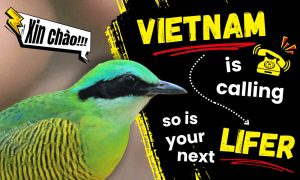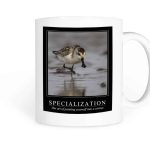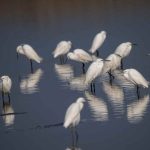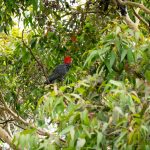Emotion. Drama. Intrigue. Philosophy. Yes, I’m talking about scientific proposals to ornithological taxonomic authorities. Take, for example, the gem I found in the latest round of proposals to the American Ornithologists’ Union’s North American Classification Committee.
The proposal, titled “Change English name of Columbina inca from Inca Dove to Aztec Dove,” begins thus: “I’m serious.” Oh, honey.
“[Inca Dove is] a completely misleading, nonsensical, embarrassing name that should not be perpetuated…. In fact, I wonder how the planet manages to continue to rotate on its axis,” continues the author, Dr. Van Remsen, without a trace of melodrama.

Inca Doves (Columbina inca) by triggzBb
The problem, of course, is that the Incas ruled the Andes, but Columbina inca resides in southern North America and Central America, over much of which the Aztecs once ruled. There does not seem to be a good explanation for why a Mesoamerican dove was named for a South American empire.
So, Dr. Remsen, while pointing out that he ordinarily prefers stability in English names, proposes a switch from Inca Dove to Aztec Dove. You can read the whole proposal here.
Honestly, I will be surprised if this proposal passed the committee (we’ll find out next month). On the other hand, maybe it struck a chord. I’m on the fence myself. Dr. Remsen clearly feels that continuing to use the name perpetuates ignorance — and perhaps, if I may extend the thought, prejudice.
What do you think? Do you favor the switch? Does continuing to use a nonsensical name makes us dumber, or would the resulting confusion after a switch be worse? Does it open important philosophical and cultural questions, or is it much ado about not much? Weigh in down in the comments section, please. I’d love to hear what you think.














If They change Inca Dove because it doesn’t make sense then should they not change Connecticut Warbler, Cape May Warbler and many others as well?
You might want to check your wordpress installation: I happened to look at this page via readability, and it just gave me a load of spammy links about free photoshop downloads and windows keys and suchlike.
Sure, rename the dove. But 1) The Inca was a title passed down through a lineage of rulers, not a name for a people, and 2) “Aztec” is a terminological invention of the nineteenth century. If one wanted to name the bird after a specific group of people, it would have to be “Mexica”, “Nahua,” etc. All of which sets aside the larger question of what cultural work is done by predominantly white ornithologists naming birds after poorly-defined groups of native americans. What was it about this dove that ever marked it as “Inca(n)”? I think there are larger questions about the relationships of the birding community to indigineous people that this would gloss over.
Well, I might be on the fence, except that given the bird’s specific epithet of “inca” (which cannot be changed) it seems unnecessarily confusing to change the English name to something different. I don’t think binomials or common names are often looked to as accurate representations of any aspect of human history. I’d rather we quit calling birds from different families “grosbeaks” than worry about people thinking the Incas lived in Mexico.
Say’s Phoebe is named (three times: common name and twice in the binomial) is named for an Entomologist…if you want to talk about travesties!
Do it. I’m just a birder, not an ornithologist, so I love watching this stuff happen.
I can’t see the point of such pedantry. Bird names have accumulated the same distortions and misunderstandings that all names do over time. The residents of Holland are named for just such a dumb mistake. Should we stop calling them Dutch?
I’m all for name changes…as Kirby points out, there is no end in sight to the number of inaccuracies in bird nomenclature, but why should we be content to let them be? I don’t see a single negative aspect about changing Inca to Aztec Dove; this simple change is far easier to grasp than bird splits, lumps, resplits and relumps…and unless you consider Aztecs and Incas to be the same thing (you could say its not racist, but its blatantly ignorant), there isnt anything to be confused about.
No, lets call it Nahuatl Dove or how about Mesoamerican Columbina? I think that has a great ring to it! Seriously though, the name of this little, long-tailed Columbid is already so well established that we might as well keep calling it an Inca Dove.
I propose that in the year 2020 – after scientists using DNA are more accurately able to place the various species on the evolutionary tree – that we have a wholesale renaming of birds world wide, including scientific names. This way we can clean up a lot of the naming messes of the past. I think birders and scientists will get over the heartburn of these changes quickly enough as we trend toward accuracy.
Though I respect the great ornithologists of history, I too prefer common bird names that differentiate the bird from others rather than being named after and honoring people.
@Harry, thanks for the tip. I found the evil hack you mentioned, but probably didn’t stop it from happening again.
I second Robert’s terrific proposal.
Why not give Columbina inca a Nahuatl name? The language group is indigenous to Mesoamerica, and we already use loan words from Nahuatl for animals like the quetzal, the coyote, the ocelot and the axolotl [and for lots of other things, too: tomato, avocado, mesquite, jalapeño]. In Spanish, a number of common bird names come from Nahuatl — the Mourning Dove, if I recall correctly, is Paloma Huilota, from the Nahuatl word for dove, huilotl.
My recommendations for common names:
1. What do the indigenous people call the bird? Use that, or an appropriate variation.
2. No satisfactory indigenous name? Use a name that reflects the bird’s range, habitat, voice, behavior or appearance.
But don’t give birds common names in honor of scientists, wealthy philanthropists, historical figures or whatever. Scientific names, sure, but no more common names honoring people, please. I will totally throw up if my beloved Mountain Chickadee is ever, in a million years, renamed B… B… [OMG, I can hardly bring myself to say it] “Bailey’s Chickadee” [shudder].
How do people relate this proposal to another on the table this year- the one proposing a newly-minted Hawaiian name for the Maui Parrotbill? My first reaction was to be entirely opposed to it. My objection is that the name is new. In most cases, a Hawaiian name was already established before westerners came along and those names rightly precedence.
The discussion on the Inca Dove name change had me rethinking my view in the parrotbill proposal. After all, if we are going to set aside precedent when correcting egregious mistakes, it would be uncharitable to refuse native Hawaiians the opportunity to name their birds, at least the ones they recognized as good species historically. Please correct me if I am wrong, but I believe the native Hawaiians were not aware of the Hawaii Creeper as a species, which is why they never named it. The parrotbill, on the hand, was almost certainly known to them and therefore must have a had a name. Unfortunately, that name was lost.
The name may well be nonsensical but then so are a great many others and that includes scientific names (e.g Larus ridibundus, Larus melanocephalus). Why single out Inca Dove for attention? To suggest changing just this one name is also nonsensical!
The IOU has already made an attempt to bring in ‘recommended English names’ but has shied away from trying to change some such as American Robin (North American Lawn Thrush perhaps?) because whatever new name is proposed it is unlikely to be accepted and brought into common usage.
As for naming birds based on their appearance, that approach has also landed us with many nonsensical names that refer to features that aren’t the most obvious or which can only be detected in the hand.
There is a story about a one-day conference at which all of the world’s birds were named. Those that were dealt with in the morning got reasonably sensible names but after the alcoholic lunch…
RE; SAY’S PHEOBE: The old timers were generally wider ranging than just what they published in.
Actually I know many Mexican and Guatemalan birds by scientific name rather than approved (by Whom?) common names. Even more so in insects whose species numbers are huge.
I have a ?. In 1983 went fishing off pacific coast of Guatemala. We were told it was “mal agua” = bad water. Lots of gas bubbles coming to surface. 3 Antarctic skuas, about 75 yaegers(but no long-tailed) and as we trolled fore 30 miles phalaropes as far as we could see. Liturature said they should be off Peru. dDo they locate by smell or by sight?
I like the poetry of descriptive names, like Yellow-rumped Warbler, and Ash-throated Flycatcher. Like Robert, I also don’t think birds should be named after people. These are birds not people, and it seems a llittle human-centric, maybe even arrogant, IMO to name birds after people.
Of the 2,078 AOU area species, 126 are named after people. This is 6% of the bird species that are named after people. Personally, I love the descriptive names of the remaining 94%. I propose we rename the 6% to descriptive names.
I think it’s kind of silly to say we shouldn’t rename the Inca Dove simply because there are already so many other poorly-named birds. That’s like saying we shouldn’t try to get anything right because there’s already so much that’s wrong in this world, so why bother? Must we wait for a single all-encompassing proposal to change every bird name in the world before we try changing a single one? Moorhen got changed, and rightly so – so why not Inca Dove?
On the other hand, we may ask how far down the rabbit hole we really want to go. How about renaming Turkey Vultures, Ring-necked Ducks, Summer Tanagers, and American Goldfinches? You can make an argument that none of these names makes sense either.
And is it necessarily the case that a descriptive name is preferable to naming something after an individual in all cases? Do we really want to rename Hermit, Swainson’s, and Bicknell’s Thrushes? What kind of descriptive names would really be any more helpful or meaningful than those, given the superficial similarity of all these species?